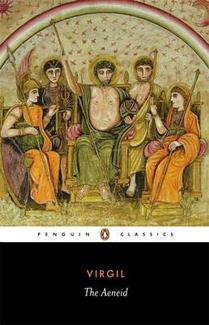Classicists and the Other Side December 7, 2010
Author: Beach Combing | in : Ancient, Contemporary , trackback Beachcombing recently opened up a new tag on ‘Rogue Researchers’, lovable academics who have left the bounds of their respectable (and incredibly tedious) colleagues by, say, talking to spirits at archaeological digs, boiling dormice alive or, a personal Beachcombing favourite, re-enacting Mayan heart removal on Mexican John Does.
Beachcombing recently opened up a new tag on ‘Rogue Researchers’, lovable academics who have left the bounds of their respectable (and incredibly tedious) colleagues by, say, talking to spirits at archaeological digs, boiling dormice alive or, a personal Beachcombing favourite, re-enacting Mayan heart removal on Mexican John Does.
And today he wants to induct a world-beater W. F. Jackson Knight (1895-1964) and his spirit guide Virgil into the rogue’s gallery.
Now Jackson was a classics professor who was based at Exeter university in the UK – his papers, including some that would be relevant here, are still kept at that institution. His brother, meanwhile, was Wilson Knight who taught Beachcombing (via a book) to love Shakespeare’s history plays. (‘The hero of the cycle is England’)
From his scholarly salad days Jackson was interested in Virgil, Augustine’s poetic patsy, ‘thou that singest wheat and woodland’, writer of the Aeneid et alia. And his studies showed traces of dangerous ‘new thinking’ from anthropology and, God forbid, sociology.
If this had been all then Jackson would just have been an innovative academic in a generation that was perhaps a little too innovative for its own good. But then came his acquaintance with T. J. Haarhoff (1892-1971) in 1950 and bang, academic Hiroshima.
Now Haarhoff deserves some space of his own (another post, another day). But it will be sufficient for now to say that this gifted classicist and Afrikaner believed himself to be in communication with several spirits of dead luminaries from the ancient world.
So he held, for example, regular meetings with Heraclitus that would not have been Beachcombing’s idea of a good time: Beach would have plumped for buxom Cleopatra or just possibly Athenaeus.
Jackson was, in any case, convinced and together they contacted Virgil who proceeded to help the pair with tricky passages in the Aeneid. Hence Virgil’s spirit speaks to us through Jackson Knight’s excellent Penguin translation of that work.
Virgil, it seems, was fascinated by Jackson’s progress and even looked after details of publication. ‘When JK had difficulties with the Penguin people, V. said – let him give in on minor points – in the end he will triumph’. As, of course, he did… Can you imagine trying to edit Jackson’s translation!
Beachcombing should also note that Virgil spoke in German (an unusual choice in the 1950s) and Latin where ‘eram vere Platonicus’ was one of his gems…
Virgil did not refer to Knight as ‘Jackson’ or ‘Prof’ but rather as ‘Agrippa’ because the Roman poet was under the impression – and for all Beachcombing knows Virgil may have been right – that Jackson was the reincarnation of Marcus Agrippa, that fiendly but efficient betrayer of the Republic.
As Beachcombing has noted on other occasions some academics will have undertaken similar, let’s call them, ‘imaginative acts’. But ninety-nine percent of these will have striven desperately to hide any dabbling with the silly powers.
Jackson, however, had cojones and spoke frankly in his lectures about his discussion with the other side. The gentle J G. Griffiths, for example, with his exquisite Welsh manners, remembered ‘an address of great charm’ at Swansea in 1963 where Virgil the spirit was hauled out as an authority.
Beachcombing is one of those old sticks in the mud who does not believe that the dead speak to us: in fact, Beachcombing does not really believe in the dead. Sorry Gran…
But he can’t help admiring the curmudgeonly Jackson, embarrassing and enlightening his Beachcombing-like colleagues by turns.
The urge to the most horrid snobbery is there in all academics (it is certainly there in Beachcombing): it defines them, it twists them and in the end it will give them all tumours.
But as professor T.P. Wiseman puts it: ‘[t]he ingenuous will to believe, the constant striving to make contact with the mind of Virgil, may be thought more admirable than an academic idiom that denies the reality of the author, insists that texts are inevitably ambiguous and undecidable, and has to put words like ‘truth’ and ‘meaning’ into inverted comma.’
Beachcombing was so excited when he read this that he wanted to add salt and pepper. But this sentence says it all. It needs no further comment.
Beachcombing is always on the look out for rogue researchers in any discipline – especially the likeable kind. Drbeachcombing AT yahoo DOT com


